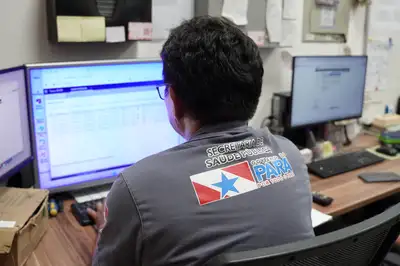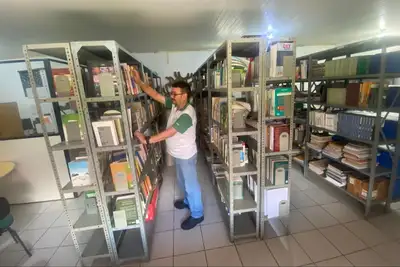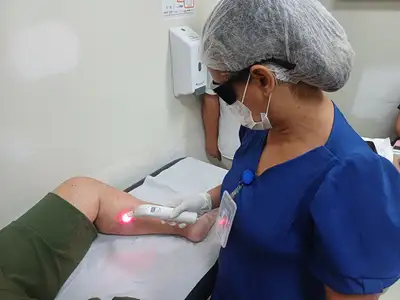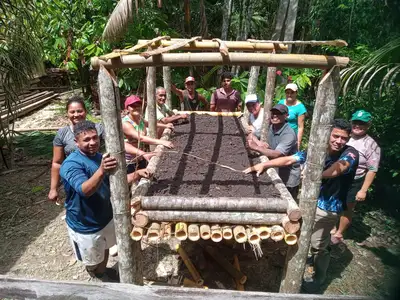Social workers at Hemopa ensure care and support beyond clinical procedures
Professionals engage in listening, guidance, and advocacy for rights, promoting a more humane and accessible health care.

The Pará Hemotherapy and Hematology Center Foundation (Hemopa) pays tribute, this Thursday (15), to the social workers who operate on the front lines of welcoming and guaranteeing the rights of patients and donors in the state blood network. In an environment marked by clinical and emergency demands, these professionals are essential to ensure qualified listening, social support, and dignified access to health services.
The date, celebrated nationally on May 15, marks the regulation of the social worker profession in Brazil by Law No. 8,662/1993. At Hemopa, it symbolizes the commitment to a more humane, just public health system integrated with social protection networks.
Present in various units of the Foundation, social workers develop actions ranging from support for people in vulnerable situations to referrals for public policies in the areas of health, assistance, and citizenship. Their work extends to both outpatient and hospital care, involving patients with chronic hematological diseases – such as hemophilia, sickle cell anemia, and other coagulopathies – as well as users of blood and bone marrow donation services.

In donor recruitment, social services play a direct role in strengthening the culture of voluntary and solidarity donation. “The impact of our work has a direct effect on the health of the population. Throughout my 30 years at the institution, we have worked collectively to build strategies that ensure the protagonism of social services in this process,” says Juciara Farias, social worker and manager of the Donor Recruitment sector. This area is responsible for mobilizing, sensitizing, and retaining volunteers, promoting campaigns and articulating partnerships with public and private institutions. “Our professional knowledge is applied with a social perspective focused on caring for others, whether the donor or the patient,” she adds.

Another example of the strategic role of social workers is in the Socio-Psychopedagogical Management (GESPP), coordinated by Cristina Socorro Mendes dos Santos. This unit is responsible for psychosocial and educational support actions, focusing on treatment adherence, strengthening family ties, and user well-being. Cristina, who has 27 years of experience in the profession and 19 years dedicated to Hemopa, reinforces the significance of the date.
“May 15 is a milestone that reminds us of the relevance of our work and how it positively impacts people's lives,” she states. “Here at Hemopa, we are encouraged to grow professionally, with constant access to training that strengthens our practices. I have seen children grow, families overcome challenges, and young people reach university. It is gratifying to know that our work contributed to this, going beyond assistance to transform lives,” she emphasizes.
For the technical director of the Hemopa Foundation, Larissa Francês, the recognition and appreciation of the profession are fundamental for the institution's functioning. “Without these professionals, our reach within the population would not be as broad or effective. Like the other members of Hemopa's multidisciplinary team, social workers play an indispensable role in the institutional mission to ensure the safe and continuous supply of blood in the state,” she asserts.
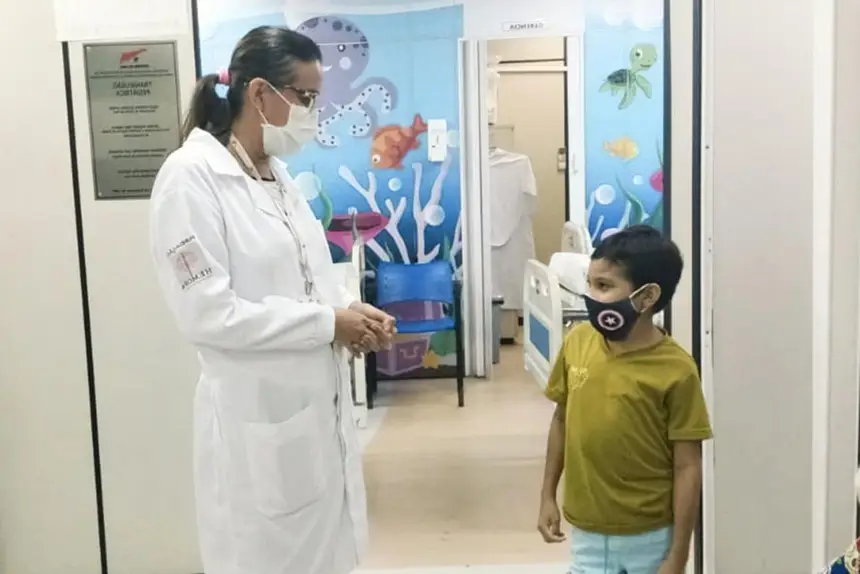
Larissa also highlights the role of social workers in mobilizing society. “With sensitivity and commitment, they work in recruiting new donors and retaining those already registered, strengthening the culture of voluntary donation. Through lectures and educational actions in hospitals, schools, companies, and public spaces, they promote awareness of the importance of donating blood. In addition, they provide humanized care to patients and companions, offering support, guidance, and assistance in moments of vulnerability,” she concludes.


